Research Innovation

Office for Open Research
In April 2022, we launched the Office for Open Research (OOR), which is dedicated to supporting more reproducible, efficient, and rigorous research across the University.
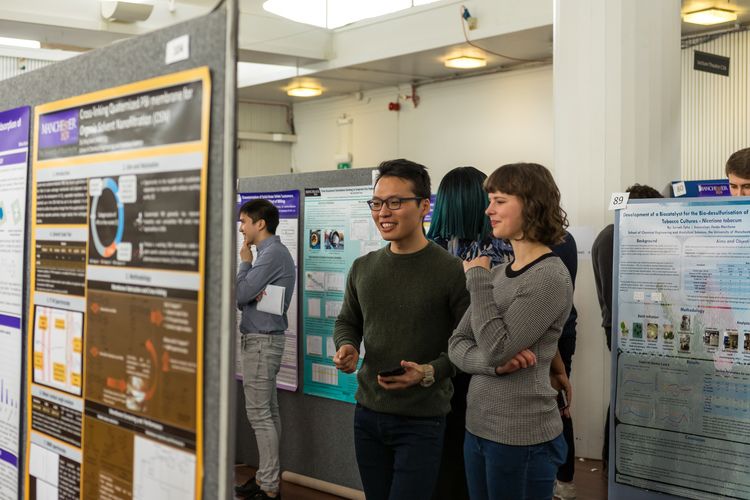
In its first six months, the OOR has:
- Established a new Open Research Service Partnership to connect the different teams in the University’s Professional Services responsible for supporting Open Research. This partnership is key to ensuring a collaborative approach to developing open research support
- Supported nine research projects to further develop open research practice. This was possible through the new Open Research Accelerator Fund awards
- Showcased examples of successful open research practice at The University of Manchester through publishing seven case studies and twelve videos and animations spanning a range of research disciplines
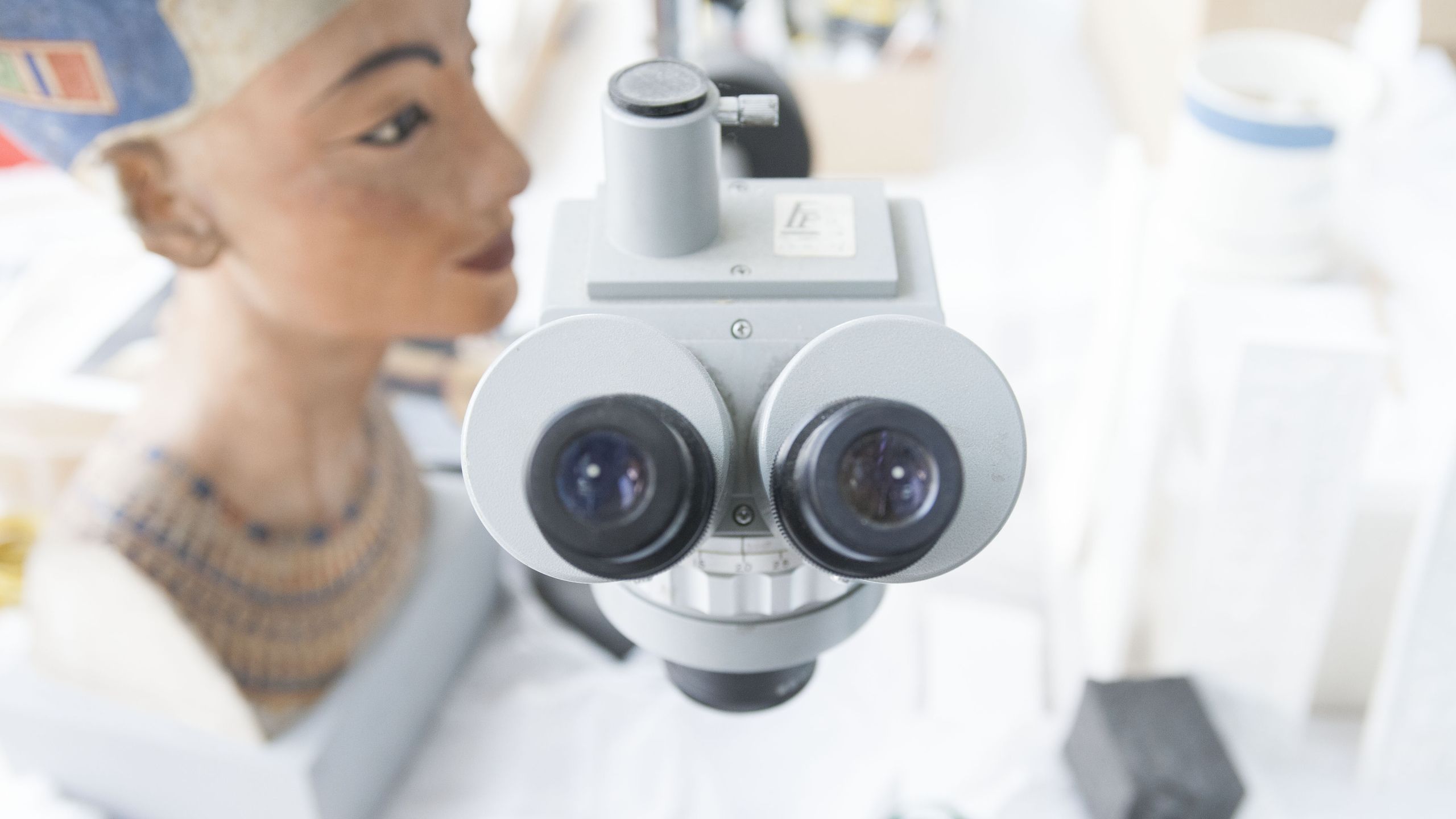
Open Research Strategic Action Plan
Work has started on several projects prioritised in the Library’s Open Research Strategic Action Plan.
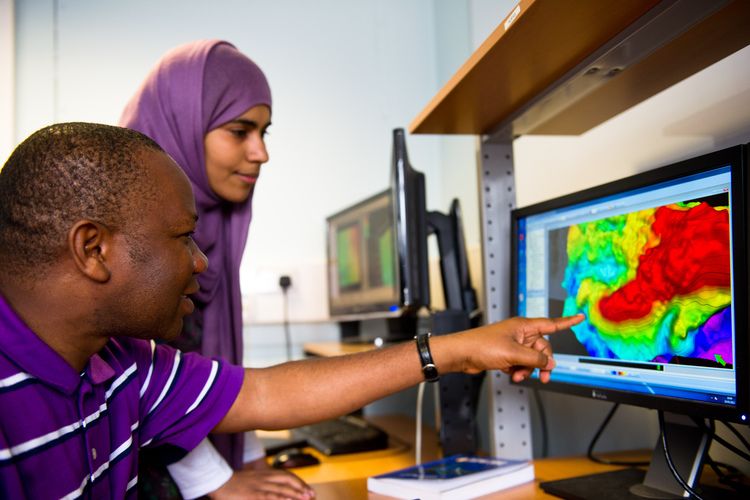
- Open Research skills: We are developing the processes, systems and skills to pilot a new blended programme of open research training resources. This programme aims to sustainably scale up the provision of open research skills across the organisation. These resources will be locally adaptable to meet discipline specific needs
- Open Research workflows: We are developing guidelines, policies, and practices for sharing protocols, methodology and code under open-source licenses in order to streamline open research processes
- FAIR data: We are embedding best practice in data management across the University by piloting a new Data Stewardship model
- Open Research recognition: We are engaging with academic communities to develop an Open Research Indicator Framework. This will allow all parts of the University to measure progress against responsible and contextually relevant goals

Responsible metrics
We completed a project to ensure institutional compliance with The Wellcome Institute’s policy on responsible metrics, and to support embedding of responsible metrics principles and practise.
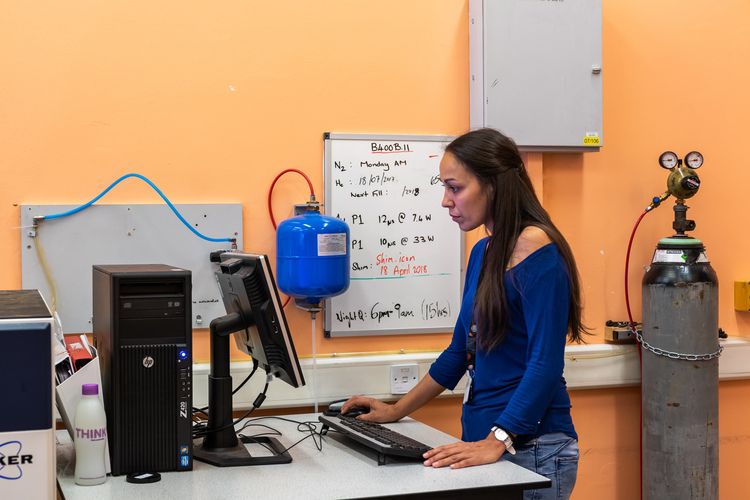
The project involved creating a new suite of online resources to provide guidance on the responsible use of metrics:

UKRI Open Access Policy
The University’s largest research funder, UK Research and Innovation (UKRI), introduced a new Open Access policy in April 2022.
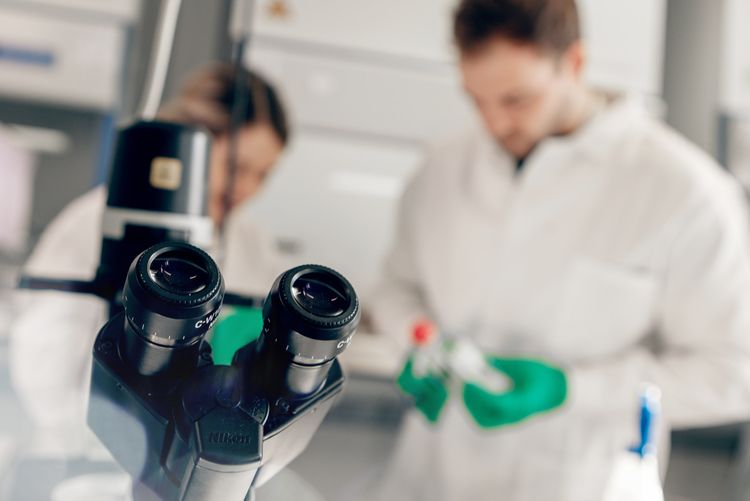
The Library supported the policy’s implementation by delivering a well-received package of communications and guidance that resulted in a smooth transition to the new policy. These included dedicated new webpages, a downloadable presentation which has attracted over 1000 views, targeted emails, and weekly clinics. Work is now underway to prepare for UKRI’s new policy requirement for Open Access monographs from 2024.

Transformative agreements
We have continued our local and sector-wide efforts to responsibly transition from subscription-based "big-deal" journal model to new Open Access publishing models.
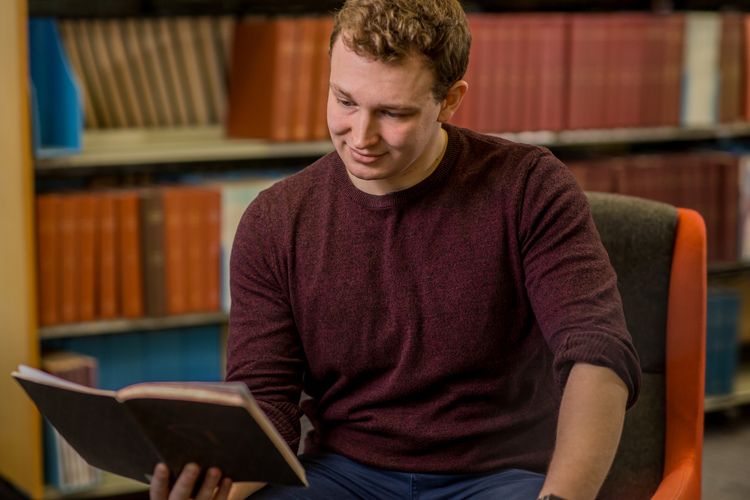
Our contribution to consortial efforts has so far secured 21 Transformative Agreements for University authors with various academic publishers.
Pure Books Ordering Application
This year, we launched the Pure Books Ordering Application. This application simplifies the purchase of books by University of Manchester authors to support collection development and the Research Excellence Framework (REF).
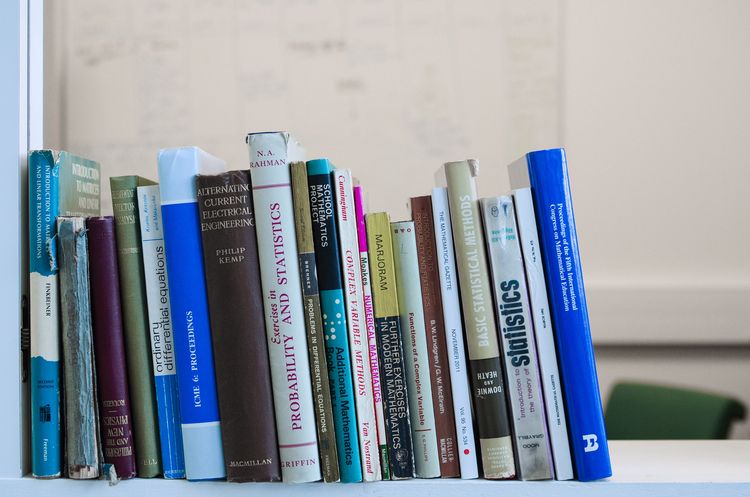
It is a useful tool for the Library’s Acquisitions Team, who use the application to:
- Identify University of Manchester research outputs published in book-forms (monographs, edited volumes, encyclopaedia entries etc.)
- Check the Pure publication status
- Check existing print and e-holdings and order items for purchase
We are in the final stages of testing functionality that will automatically generate an email to our academics. In this email, we will notify them of any purchases of their Pure outputs as soon as the items arrive or are activated. This application replaces a manual spreadsheet-based system and will prove to be a great time saver.

Seminar series
Between February and May 2022, the Rylands hosted a series of online seminars where academics presented new research in conversation with Curatorial Practices colleagues. These seminars demonstrated the partnership between Rylands staff and researchers and were an opportunity to share current research with both public and academic audiences.
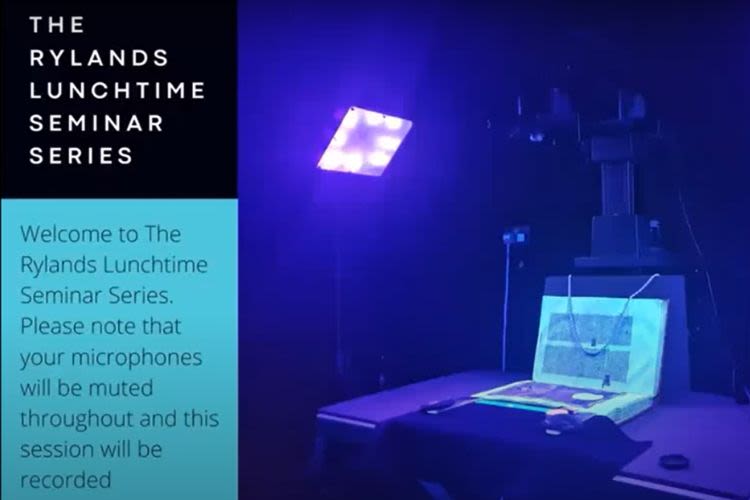
Most seminars used the Visual Teaching Setup to show special collections in-real time to at-home audiences; they were also recorded.
The series attracted over 300 attendees; while nearly 400 people have watched the recordings on the Rylands Youtube channel.
